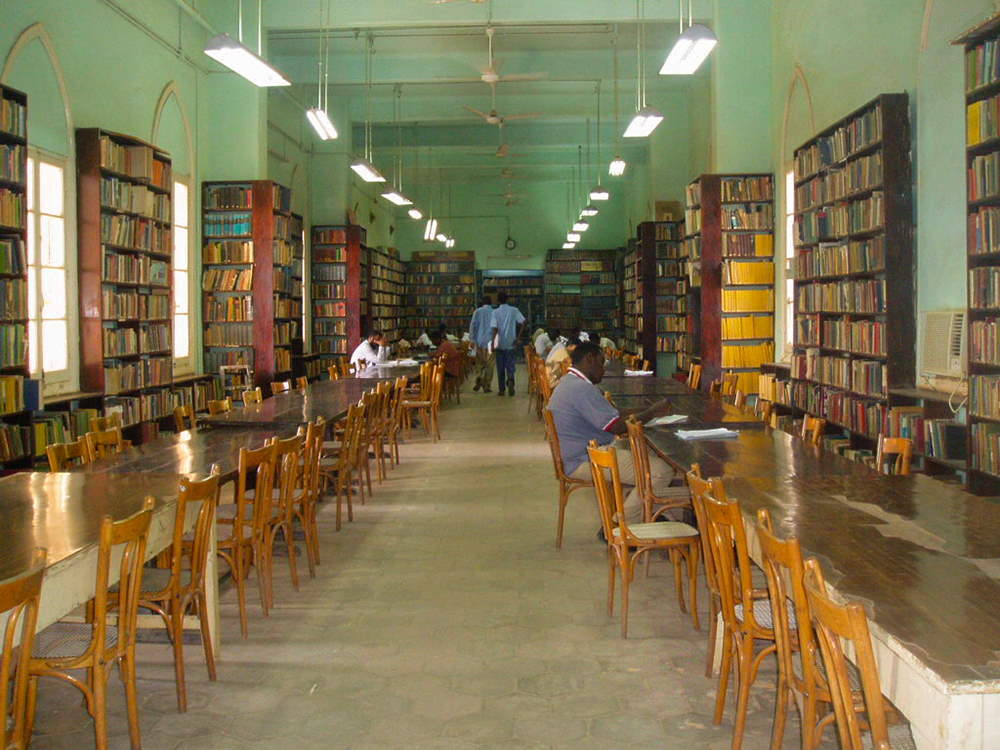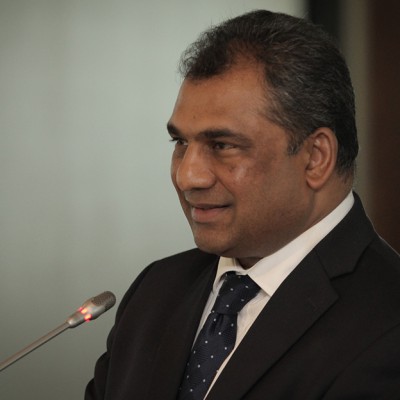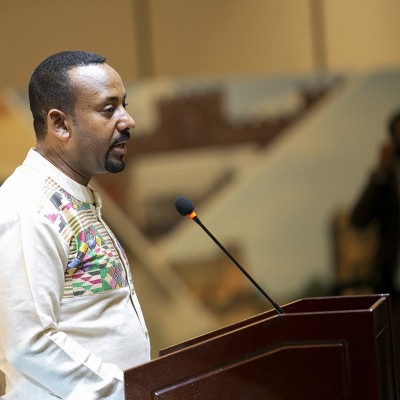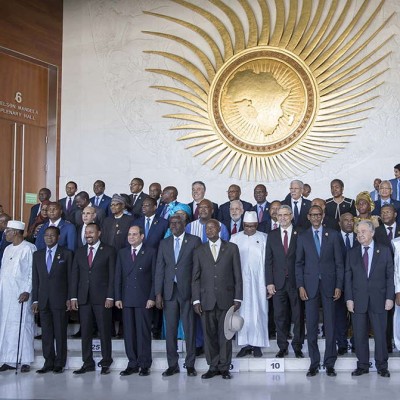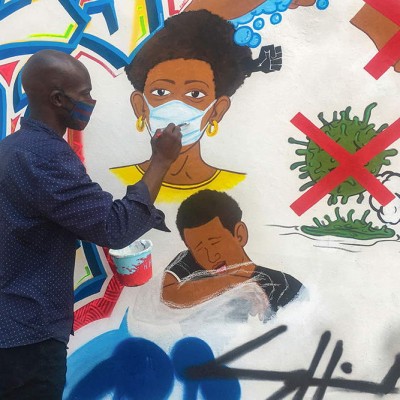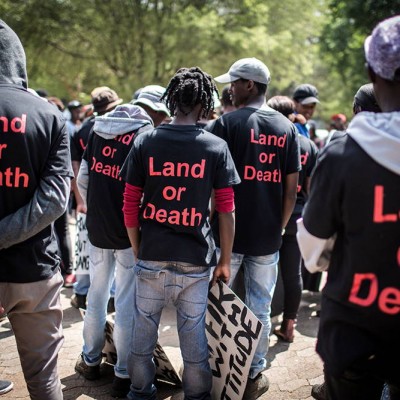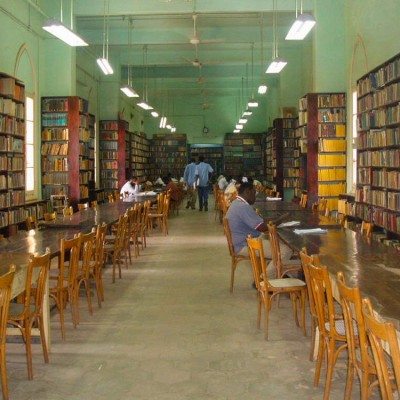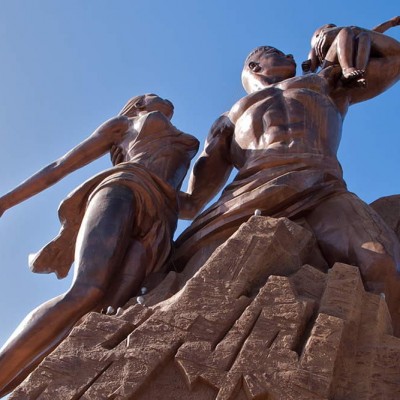Introduction
The Darfur region lies in the western part of Sudan (Africa’s largest country), near the borders with Libya, Chad and the Central African Republic. The population of Darfur was estimated in 2002 at about six million people, 80% of whom live in rural areas.1 The conflict in Darfur erupted in 2003 and has a footprint of complex and deeply rooted consequences attributed to local, regional, national and international factors. The conflict resulted in widespread human rights violations, especially against women and children, and the displacement of hundreds of thousands of people throughout the Darfur region and to neighbouring countries. The conflict destroyed infrastructure, eroded social cohesion and community stability, and seriously curtailed employment and livelihood security. As confidence eroded, investment in much-needed development of the region diminished.
Conflict affects countries at all levels of economic development, but it disproportionately affects less-developed countries or countries in economic stagnation.2 The protracted instability and violence in Darfur, coupled with endemic negligence and scarce resources allocated to educational and cultural institutions, has resulted in the deterioration (and, in some cases, collapse) of professional knowledge, development and information-sharing infrastructures in the region. Public libraries, which were once thriving institutions in many cities and towns of Sudan, have become, in most cases, memories of a distant past. This is very unfortunate because historically, libraries and librarians have always played an important role in strengthening information management and fostering access to information in society. Preventing conflict recurrence in Darfur remains a major concern. Even after the violent conflict ended, the challenge to build stable peace in Darfur seems insurmountable and requires the concerted efforts of all stakeholders to achieve lasting peace and stability in the region. Libraries can serve as barriers to calls for violence and dangerous ideas, and provide local community members with information and education that would enable them to appreciate peace and bring an end to violence. For example, newsrooms have become libraries’ most popular department, their contents representing a variety of opinions,3 and the role of librarians in promoting views and messages of peace cannot be overestimated.
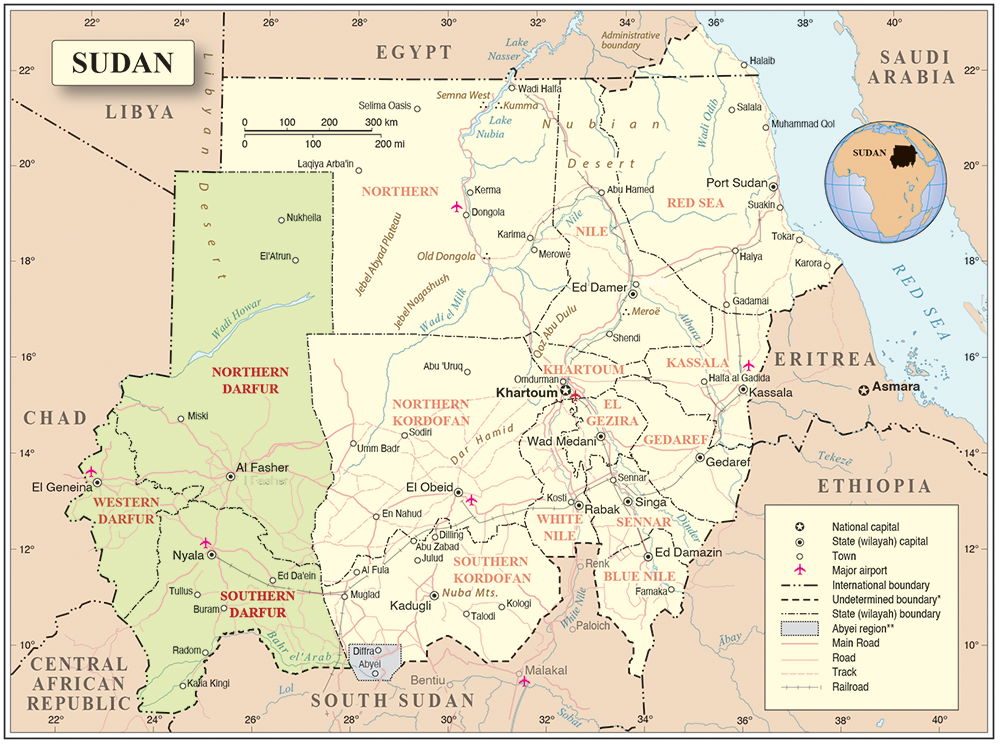
Resurgent Interest in Libraries and Thirst for Knowledge
Various parts of Sudan, including Darfur, are seeing a resurgence of interest in building new libraries or refurbishing and renovating the existing ones. This new phenomenon can be explained by a new quest for national identity. In 1963, The United Nations Educational, Scientific and Cultural Organization (UNESCO) wrote that “Sudan has also a unique position, standing as it does at the meeting place of African and Middle-Eastern cultures. Its library service, therefore, should assist the people of Sudan to understand more fully their own cultural traditions and that of their neighbours, so that they can carry out more adequately the role which is theirs by virtue of their geographic and cultural position.”4
Interestingly, the history of libraries in Sudan and in early American society are amazingly similar. Books were always an important part of British American and Sudanese life:
Faced with choices about what to bring across the Atlantic, some early colonists privileged their books. The writings of Captain John Smith and other Jamestown settlers record the existence of books in England’s earliest permanent American colony. Farther north, New England settlers such as Plymouth elder William Brewster also brought their book collections with them to the New World. As colonial settlements gained firm ground, libraries in seventeenth-century British America emerged most strongly in the form of personal collections and Anglican mission collections. There were some experiments involving governmental oversight of libraries, and the first of the American collegiate libraries took root.5
This is the way it goes in The Book of Khartoum: A City in Short Fiction – stories in which the city is a character – “a deeply affecting, vulnerable, exasperating and glorious entity. In some ways, the collection makes true once again the Arabic saying: ‘Cairo writes, Beirut prints, Khartoum writes’.”6 The Sudanese used to take pride in this motto, which was probably of their own invention. Indeed, Khartoum contains many of the beginnings of the story of modern Sudanese literature. The introduction of a printing press at the beginning of the 1900s “enabled the proliferation of literacy and intellectual journals in the 1920s and 30s, in which educated young Sudanese writers experimented with new literary forms, formulated ideas of national identity, and debated controversial questions of political independence (from both England and Egypt)”.7 This gave impetus for the inception of public libraries in Khartoum, which gradually expanded to other parts of the country.
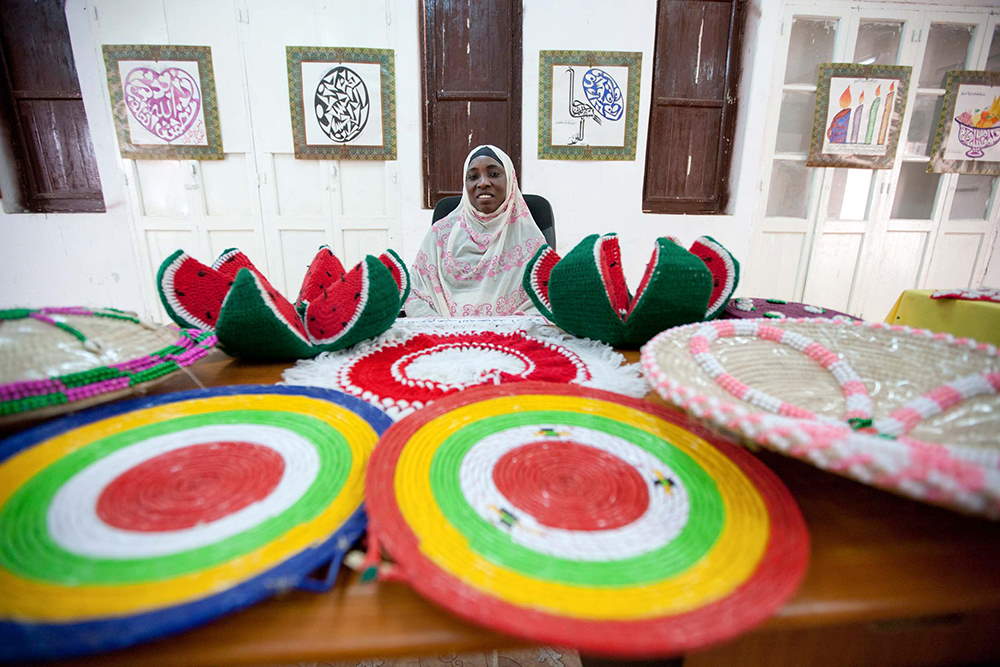
The Changing Role of Libraries in Post-conflict Settings
In the 21st century, the new libraries in Sudan are no longer what they used to be. With the astounding technological progress that has taken place in recent decades, libraries have become centres for the preservation, restoration and retrieval of national and global intellectual, cultural, artistic and historical heritage, as well as spaces for dialogue and the exchange of ideas and views on major issues of our time. Through their digitisation and increasing networking and linking with local and foreign centres of learning and excellence, libraries have become a vital and indispensable instrument for opening minds and creating awareness of peace and humanity at the individual and social level.
Libraries are an integral part of local communities. They are more than just four walls and shelves of books. “Library and society are inter-linked and inter-dependent with each other. Society without libraries has no significance, and libraries without society have no origin.”8 A library is a place where people can gather to meet new people, discuss social and historical facts and issues, or read books or articles. Getting together with others is a valuable component of successful community life and may increase people’s confidence and self-esteem. A library is a place where community-building and community-strengthening happens. It provides opportunities for people to interact and connect with others, and fosters a sense of belonging in a community.
Indeed, libraries provide people with information they need to plan their lives, resolve disputes, work and entertain, learn, play and manage. Communities with well-sustained, equipped and accessible facilities significantly contribute to the moral, spiritual and cultural advancement of their members and their intellectual development. Libraries educate and present such communities as role models for healthy, peaceful and friendly societies. The availability of libraries in cities, towns and villages is an indicator of the intellectual well-being of the local inhabitants and the nation at large. A library is one of the most admirable knowledge and information-sharing institutions in society.
Role of UNAMID in Promoting Peace in Darfur through the Revival of Libraries
As gateways to knowledge and culture, libraries play a fundamental role in society. The resources and services they offer create opportunities for learning, support literacy and education, and help shape the new ideas and perspectives that are central to a creative and innovative society.9 In this light, libraries have significant potential to play a key role in conflict resolution at the community level. Therefore, in 2012, in the interest of reviving the cultural and intellectual legacy of the people of Darfur, the United Nations–African Union Mission in Darfur (UNAMID) developed an innovative approach to promoting peace and non-violence at the grassroots level through the revitalisation of public libraries and improved access to education, cultural heritage and knowledge development in Darfur.
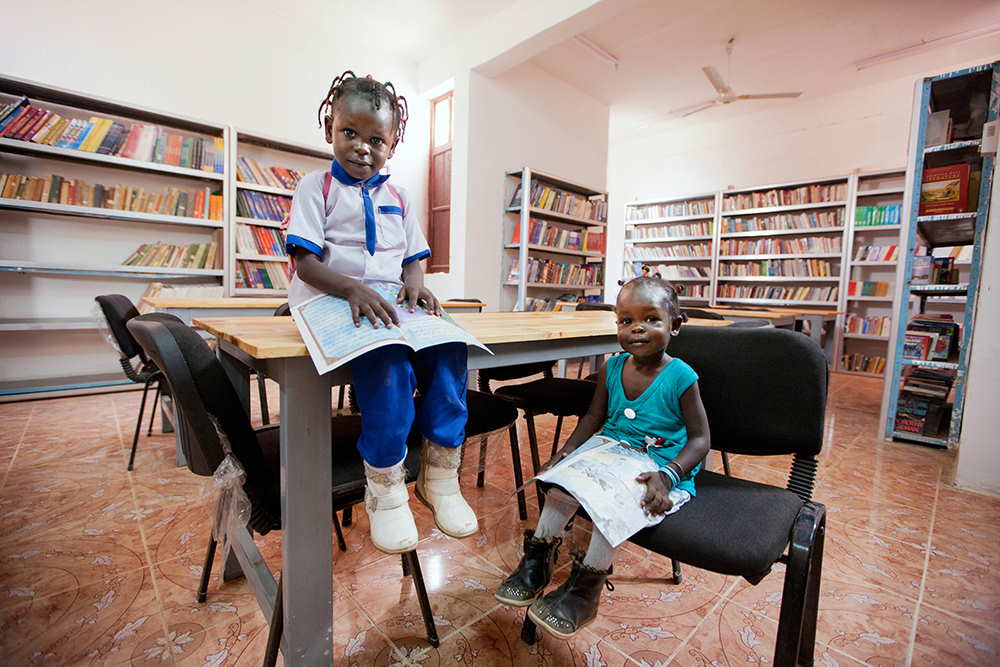
UNAMID was established in 2007 by a decision of the United Nations Security Council (UNSC) to promote peace and stability in the region, facilitate peace talks, protect the civilian population from physical violence, contribute to the security of humanitarian assistance, monitor human rights, and mediate the intercommunal disputes over natural resources and access to land. In fulfilling its mandate, UNAMID has implemented more than 500 quick-impact projects (QIPs) at the community level to, inter alia, contribute to recovery from the consequences of violence and promote the return to normalcy.10
UNAMID’s vision of social cohesion is that trust and confidence-building measures have to be implemented to induce cooperation and produce positive attitudes that create a better atmosphere for the peaceful settlement of differences. The failure to provide solutions to the root causes of problems that caused the war creates new dynamics in a continuing search for peace in a divided society. Whereas progress in peacebuilding relies on the improvement of intercommunal relationships, repairing relationships at a psychological level is an important factor and led to the development of the UNAMID library project. “In the complicated modern society libraries have many kinds of answers to many demands of the society, as well as those of the citizens. They have potential means to serve both the information society development and their traditional humanistic tasks.”11
The El Fasher Cultural Centre and the Library of Peace
The El Fasher Cultural Centre is located on the outskirts of the bustling central market of El Fasher, the capital of North Darfur state, and includes a theatre, music room and a public library. The cultural centre has eight departments: art and painting, folklore, music and bands, drama, children and youth, poetry and writing, the library, and a general activities department, which includes handicrafts and languages. The centre offers language, music and other types of classes for a small fee to raise funds, and occasionally organises handicraft sales. It is also affiliated with El Fasher’s own movie theatre, which is in need of rehabilitation.
The Cultural Centre houses a small public library collection (the library was looted during the Darfur conflict). Most of the existing Arabic books are very old, and there is a small English-language book section, donated by the British Council, as well as a children’s section. The library includes several large rooms that are available for various types of social events, and is a popular recreation, education, knowledge development and interaction spot.
The attention of UNAMID to the library at the Cultural Centre was drawn by Sudanese people advocating for the revival of public libraries in Darfur. At the initial stage, a joint needs assessment mission was conducted by the Mission’s Protection of Civilians and Humanitarian Liaison officers to verify the current conditions of the library and the needs on the ground. Based on the results of the assessment, it was agreed that the allocation of two QIPs, in the total amount of US$50 000, would be the most effective way to renovate, equip and furnish the library. “QIPs are small-scale, low-cost projects that are planned and implemented within a short timeframe.”12 A local non-governmental organisation (NGO) was identified as an implementing partner for the project, and developed a project proposal endorsed by UNAMID’s QIPs Project Review and Approval Committee (PRAC). One QIP was used for renovation of the library, while the second one provided equipment and furniture. The project included general repairs, new doors and windows, 15 computers, audio equipment, furniture, and the provision of more than 20 000 new books, with the overall objective of stimulating the cultural activities as a way to address the root causes of instability and violence in Darfur, enhancing peace, and promoting education and expanded opportunities for all citizens of Darfur. The United Nations Children’s Fund (UNICEF) also made a contribution through the provision of a children’s playground, generator and maintenance of the Cultural Centre.
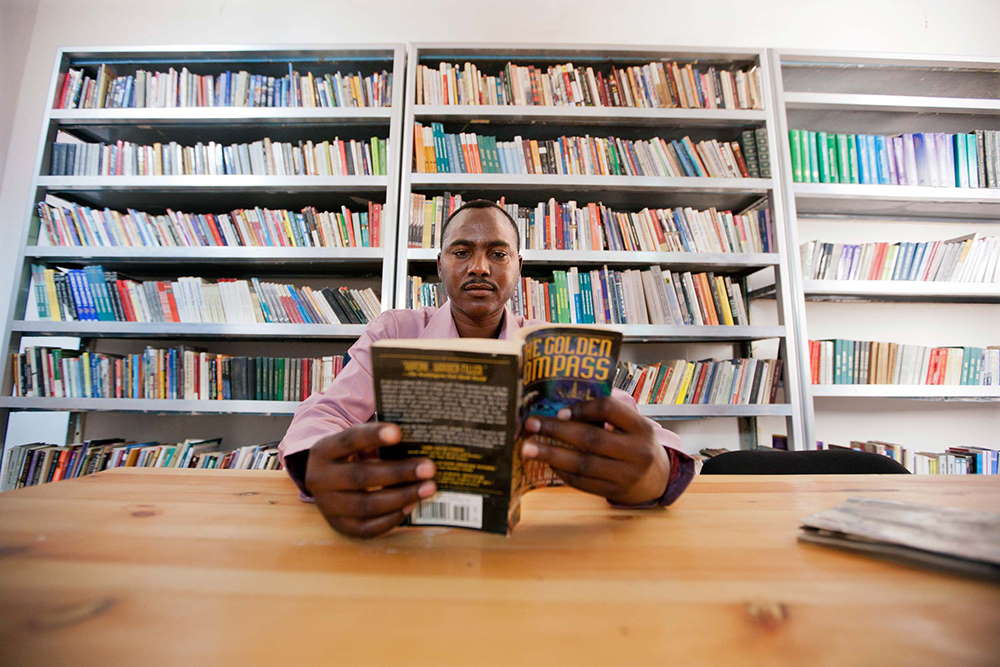
Impact
As a result of these interventions, the project created a new learning environment and improved the standards of the library. It now functions as a learning and training centre, primarily for the youth and even the elderly. The library is currently serving up to 50 users on a daily basis and promotes a culture of peace and non-violence through increased access to information, books, newspapers and news; creating space for social interaction, learning, discussing issues of peace and war; offering new vocational skills, including those to master digitalised information management systems; and so on. It has gradually become a Library of Peace in Darfur. The library allows users to have access to information resources in different formats, including CD-ROM, audiovisual and online. The library also documents and indexes books, magazines and newspapers that deal with how conflicts can be resolved, and can inform local community members about such information. The library provides information using audiovisual material to less-educated and less-privileged individuals, so that they can benefit and easily understand the discussions about war and peace.
The library project handover ceremony was a large festive event for the people in North Darfur state. The ceremony, attended by local authorities, UNESCO representatives, UNAMID officials, women and youth associations and local community members, included traditional music performances, a drama representation by the Ashorooq As Salam theatre group, and photo and art exhibitions. Ibrahim Abbaker, general secretary of the El Fasher Cultural Centre, which houses the library, noted that the project will improve the standard of the library and will serve as a learning and training centre for children and the elderly in the community.
During the ceremony, the North Darfur state minister of culture and information, Zubeida Suleiman, encouraged citizens to use the library and said that it will serve not only the readers from El Fasher, but from all communities in North Darfur state. The deputy governor of North Darfur state, El Fateh Abdel Aziz, highlighted the promotion of cultural activities as a way to address the root causes of conflict and to enhance peace and stability in Darfur.13 The deputy governor’s statement at the ceremony had deep meaning in itself. Oftentimes, peace and development practitioners do not place sufficient emphasis on cultural activities as a tool for promoting conflict resolution, peaceful co-existence and peacebuilding. They tend to apply approaches that provide for political and military resolution of existing problems, grievances and differences on the ground. What needs to be explored more for addressing root causes of conflicts, as demonstrated by the library project, is the great potential of cultural activities, libraries and sports to bring people together on the basis of their cultural similarities, increased knowledge of their heritage, cultural ties, common history, neighbourhood and future goals.
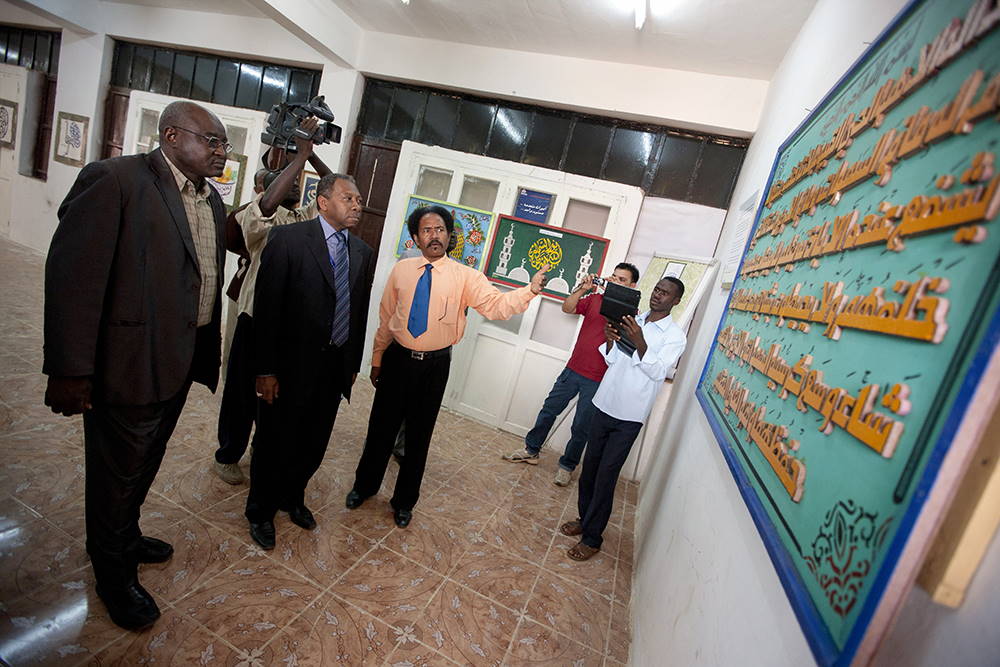
As demonstrated by the impact of the project, reconciliation efforts through encouraging increased access to public libraries contribute to a return to normalcy by focusing on both the psychological and social needs of local community members. Compassion, apology and forgiveness promoted by libraries through providing access to information and through attracting the masses away from fighting and violence constitute important dimensions of reconciliation. Psychological rehabilitation through access to social and cultural events, digitised information platforms, and the freedom to read, learn and exchange views and dialogue with community members are crucial for the social integration of a conflict-affected population. Personal and cultural realities shaped by violence have an enduring impact on people’s life and outlook on life. Personal healing is a prerequisite for group harmony, since community cannot be maintained without feelings of respect among its members.
UNAMID employed an innovative and creative approach to conflict resolution in Darfur through the rehabilitation and revival of public libraries. Empowering people with knowledge, building trust among those of different (often conflicting) tribal and communal affiliations attending the same libraries, and investing in their capacity to make informed decisions on issues affecting their personal and collective well-being, have demonstrated that libraries can play an essential role in promoting peace and stability at the grassroots level. As one of the users of the new library, Ibrahim Abaker, told UNAMID:
When I enter the library, I feel like I came to a different world. Silence, people deeply engaged in reading books, groups of students taking down notes on something from computer screens, older people with newspapers drinking tea and chatting about the events far away from Darfur… It makes me think about my life, the life of my children, my village, the war… This small library encapsulates the world I want to live in – the world free of wars and conflicts, where my children can read and educate themselves, where coming back from my farm, I can pass by the library, have tea with my friends, read news, borrow a book, and chat about the real meaning of life, peace and prosperity.14
Conclusion
The implementation of the Library of Peace project was a model of successful cooperation between UNAMID, the Government of Sudan (State Ministry of Culture, Sports and Youth), UNICEF, civil society and the public library personnel. The enthusiasm, motivation and aspiration to restore the effective functioning of the library and the subsequent delivery of its services to the people was remarkable and represented a critical success for this important initiative.
The project has clearly demonstrated the need to continuously explore innovative and creative interventions to help communities recovering from the consequences of violent conflicts foster peace and resolve conflicts. It is also important to encourage national and international actors in post-conflict settings to promote a culture of peace and non-violence at the grassroots level in conflict-affected areas through, inter alia, the revitalisation of public libraries, which can be a social agent for a positive change.
The success of the library project has also proved that public libraries in Darfur have great potential for bringing peace and stability to this war-torn society through providing space for community reconciliation processes and improved access to education, cultural heritage and knowledge development. Based on the success of the project in El Fasher, the capital of North Darfur state, a similar project was developed and implemented by UNAMID in El Geneina, the capital of West Darfur state, where a reading hall was constructed for the local public library to help expand the provision of services to larger groups of people, increase access to education and knowledge development, and promote peaceful co-existence among community members.
In April 2016, UNAMID received the London Book Fair International Excellence Award for Education Initiatives for the implementation of the Library of Peace project in El Fasher15 and, in July 2017, the project was presented at the Fifteenth International Conference on Books, Publishing and Libraries held at Imperial College London.16
In the current circumstances, when the wounds of Darfur are still raw, the region depends on the support of UNAMID and other international organisations to recover from the consequences of brutal conflict and to continue reviving the cultural and educational heritage of the Sudanese people. At the same time, it is clear that sustainable and long-term post-conflict recovery requires more than ad hoc projects and initiatives. The successful eradication of poverty, healing the wounds of war, reconciliation and development require significant effort, time and resources – first and foremost from the Government of Sudan, which must take the lead in the transformation to peace. The very recent transition of the country to democracy offers a unique opportunity to achieve lasting peace and stability in Darfur, with the support of the international community.
Endnotes
- Sikainga, Ahmad (2009) ‘The World’s Worst Humanitarian Crisis: Understanding the Darfur Conflict’, Available at: <http://origins.osu.edu/article/worlds-worst-humanitarian-crisis-understanding-darfur-conflict> [Accessed September 2020]
- Echezona, R.I. (2007) The Role of Libraries in Information Dissemination for Conflict Resolution, Peace Promotion and Reconciliation. African Journal of Library, Archives and Information Science, 17 (2), pp. 153–162, Available at: <http://www2.hawaii.edu/~donnab/lis610/echezona_role_lib_info_dissem_conflict_resolution_2007.pdf> [Accessed September 2020]
- Black, Alistair (2020) ‘Public Libraries have been Vital in Times of Crisis – from Conflict to Covid-19’, Available at: <https://www.apollo-magazine.com/public-libraries-in-times-of-crisis-covid-pandemic/.[Accessed September 2020]
- Sewel, Philip Hooper (1963) ‘Report and Survey on Library Services in the Sudan (1960)’, United Nations Educational, Scientific and Cultural Organization (UNESCO), Available at: <http://unesdoc.unesco.org/images/0000/000021/002191eb.pdf> [Accessed September 2020]
- Fatherly, Sarah (2008) Early American Libraries. In Hayes, Kevin J. (ed.) The Oxford Handbook of Early American Literature. Oxford University Press. Available at: <https://www.oxfordhandbooks.com/view/10.1093/oxfordhb/9780195187274.001.0001/oxfordhb-9780195187274 [Accessed September 2020]
- Lall, Rashmee Roshan (2016) ‘These Short Stories Make True the Saying “Cairo Writes, Beirut Prints, Khartoum Reads”’, Available at: <https://www.rashmee.com/2016/08/09/these-short-stories-make-true-the-saying-cairo-writes-beirut-prints-khartoum-reads/> [Accessed September 2020]
- Cormack, Raph and Shmookler, Max (2016) Introduction. In Cormack, Raph and Shmookler, Max (eds) Book of Khartoum. A City in Short Fiction. Great Britain: Comma Press.
- Ashikuzzaman, Md (2016) ‘Library and Modern Society: The Role of Library in Society’, Available at: <http://www.lisbdnet.com/role-library-society/> [Accessed September 2020]
- White, Ben (2012)‘Guaranteeing Access to Knowledge: The Role of Libraries’, World Intellectual Property Organization (WIPO) Magazine, Available at: <http://www.wipo.int/wipo_magazine/en/2012/04/article_0004.html> [Accessed September 2020]
- United Nations–African Union Mission in Darfur (2013) ‘UNAMID Acting Chief Discusses with Wali Tibin Recent Developments in Central Darfur’, Available at: <https://unamid.unmissions.org/unamid-acting-chief-discusses-wali-tibin-recent-developments-central-darfur> [Accessed September 2020]
- Ryynänen, Mirja (1999) ‘The Role of Libraries in Modern Society’, Collegi Oficial de Bibliotecaris Documentalistes de Catalunya (Official Collegiate of Documentary Librarians of Catalonia), Available at: <http://www.cobdc.org/jornades/7JCD/ryynanen.pdf> [Accessed September 2020]
- United Nations Department of Peacekeeping Operations and Department of Field Support (2012) Civil Affairs Handbook. Chapter 12: Quick Impact Projects – a Tool for Confidence Building. Available at: <http://www.un.org/en/peacekeeping/documents/civilhandbook/Chapter12.pdf> [Accessed September 2020]
- United Nations–African Union Mission in Darfur (UNAMID) (2012) ‘UNAMID Bulletin. UNAMID-Rehabilitated Cultural Centre Inaugurated in El Fasher’, Available at: <https://unamid.unmissions.org/sites/default/files/UNAMID%20Bulletin%2C%20Issue%2056%2C%20English.pdf> [Accessed September 2020]
- Interview with Ibrahim Abaker (2018), by UNAMID staff during their monitoring visit to the Library in February 2018.
- Chartered Institute of Library and Information Professionals (CILIP) (2016) ‘Zurab Elzarov Awarded the 2016 LBF International Excellence Award’, Available at: <https://archive.cilip.org.uk/library-information-history-group/news/zurab-elzarov-awarded-2016-lbf-international-excellence-award> [Accessed September 2020]
- Fifteenth International Conference on Books, Publishing & Libraries (2017) The Publisher Is Dead; Long Live the Publisher!, Available at: <https://informationmediumsociety.com/assets/downloads/books/B17FinalProgram.pdf> [Accessed September 2020]

